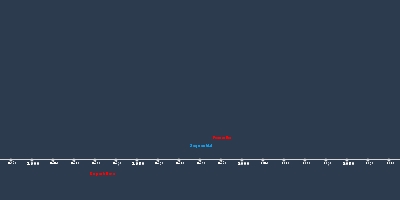jan 1, 1964 - Moog Synthesizer
Description:
The Moog synthesizer is a modular synthesizer developed by the American engineer Robert Moog. Moog debuted it in 1964, and Moog's company R. A. Moog Co. (later known as Moog Music) produced numerous models originally from 1965 to 1981 and again starting from 2014. It was the first commercial synthesizer, and is credited with creating the analog synthesizer as it is known today.By 1963, Moog had been designing and selling theremins for several years. He began developing the Moog synthesizer in response to demand for more practical and affordable electronic music equipment, guided by suggestions and requests from composers including Herb Deutsch, Richard Teitelbaum, Vladimir Ussachevsky and Wendy Carlos. Moog's principal innovation was the voltage-controlled oscillator, which uses voltage to control pitch. He also introduced fundamental synthesizer concepts such as modularity and envelope generators.
The Moog synthesizer consists of separate modules—such as voltage-controlled oscillators, amplifiers and filters, envelope generators, noise generators, ring modulators, triggers and mixers—which create and shape sounds, and can be connected via patch cords. It can be played using controllers including keyboards, joysticks, pedals and ribbon controllers, or controlled with sequencers. Its oscillators can produce waveforms of different timbres, which can be modulated and filtered to shape their sounds (subtractive synthesis).
The Moog synthesizer was brought to the mainstream by Switched-On Bach (1968), a bestselling album of Bach compositions arranged for Moog synthesizer by Wendy Carlos. In the late 1960s, it was adopted by rock and pop acts including the Doors, the Grateful Dead, the Rolling Stones, and the Beatles. At its height of popularity, it was a staple of 1970s progressive rock, used by acts including Yes, Tangerine Dream, and Emerson, Lake & Palmer. With its ability to imitate instruments such as strings and horns, it threatened the jobs of session musicians, and was banned from use in commercial work for a period. In 1970, Moog Music released a portable, self-contained model, the Minimoog.
Added to timeline:
Date:
jan 1, 1964
Now
~ 61 years ago
